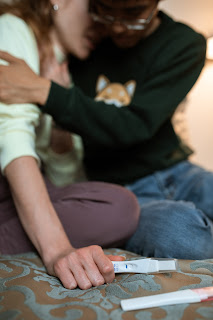A failed reproductive treatment cycle, whether it's your first or third, is disappointing. When you're trying to get pregnant, any cycle that doesn't result in a pregnancy might be discouraging. However, if you've committed emotional energy, time, and money, your expectations are likely to be higher, which might lead to increased frustration if the treatment fails.
You have various options after a failed fertility therapy cycle. You might want to attempt the same treatment again. You might want to try a different remedy next time. You may also choose to forego future treatment. The path that is best for you will be determined by your unique circumstances and what you have already attempted.
What to Talk About After a Cycle Fails
You may expect your doctor to discuss your issue with you, regardless of the treatment you're receiving. It's critical to discuss the following:
What went wrong was this: It's sometimes just a case of trying again. However, in the event of more complex therapies, such as IVF, understanding where things went wrong can help you improve your chances of success the next time.
If you attempt again, your chances of success are: They're sometimes just as good as the first time. The chances of success on the next try might often be dramatically reduced, especially after a few to many cycles. Some clinics have data analytics technologies that can forecast your chances of success with different therapies.
Any dangers associated with continuing with the same treatment:
What extra testing, if any, might be recommended: It could be tests you've had before, or it could be something completely new, such as genetic screening, karyotyping, testing for reproductive immunology disorders, or a more in-depth uterine evaluation.
What adjustments, if any, should be made: Additional risks, costs, and success rates connected with these adjustments should be explained by your doctor. You might want to get a second opinion in some circumstances.
It's not simple to deal with fertility treatment. Treatments that don't work take a toll on the patient's mental and financial well-being. It's natural to be frustrated and upset. However, few people succeed on their first or even second attempt. Remember that just because one or two cycles have failed does not mean that things will never succeed. It's possible that you simply need additional time or a different treatment strategy.
When IVF Don't Work
If the fallopian tubes are blocked, in some situations of male factor infertility, or if earlier fertility therapies have failed, IVF treatment may be considered. IVF is a time-consuming and costly procedure. For one cycle of IVF, the typical out-of-pocket cost is roughly $19,000.
Fertility medications are used in traditional IVF to overstimulate the ovaries. The eggs are then extracted and combined with sperm. Hopefully, some of the eggs will be fertilised by the sperm, resulting in healthy embryos. One or two embryos are transplanted to the uterus after three to five days.
An IVF cycle may not be able to reach embryo transfer at all times. IVF cancellation is the term for this. When an IVF round progresses to embryo transfer but does not result in pregnancy, this is a significantly different situation. But the end outcome is the same in both cases: no pregnancy. However, just because one IVF cycle failed doesn't indicate the next one won't be successful.
It takes an average of 2.7 cycles for couples who do conceive to become pregnant. Younger women have a higher success rate, but even then, multiple cycles may be required. After three cycles, the cumulative live birth rate was 42.3 percent, according to one research of over 178,000 cycles. 5 The cumulative live birth rate after eight cycles was 82.4 percent.
How many IVF cycles should you be willing to try? According to research, trying up to six times can be beneficial. According to one study, after six cycles, the cumulative live-birth percentage was 65.3 percent.
IVF Treatment Recurrence
Unfortunately, many IVF cycles fail regardless of the patient's age. After such a cycle, it is critical for the physician to discuss the events of the failed cycle with the patient to determine if any adjustments may be made in the next try."
A range of additional assisted reproductive technologies can be used to change or improve IVF treatment. Trying the same protocol again and again makes sense a lot of the time. However, there are occasions when changes must be done. These are some of them:
Different drugs
PGD/PGS - a type of genetic screening.
Immunotherapy
Including ICSI (which can aid in fertilisation of the eggs)
Hatching with assistance (which may help with implantation)
Need help in getting pregnant ? Please send me your medical details by filling in the form at www.drmalpani.com/free-second-opinion so that I can guide you!

No comments:
Post a Comment